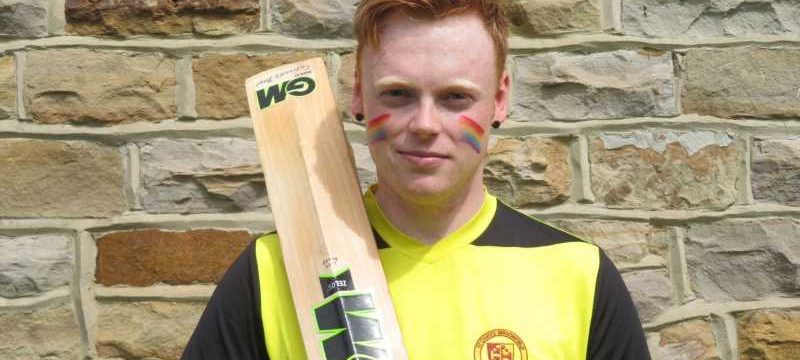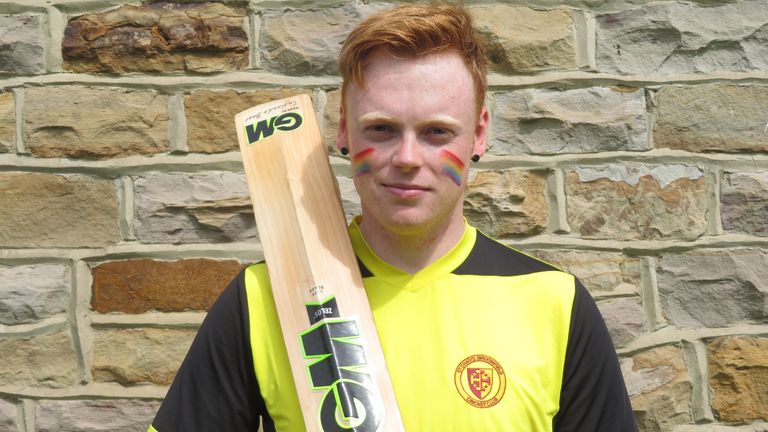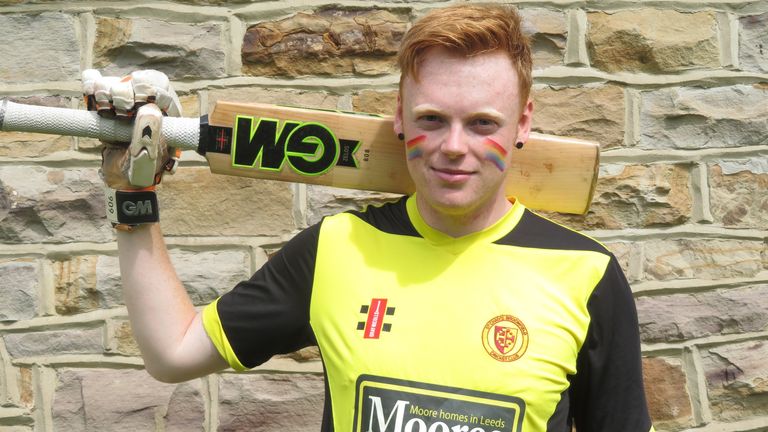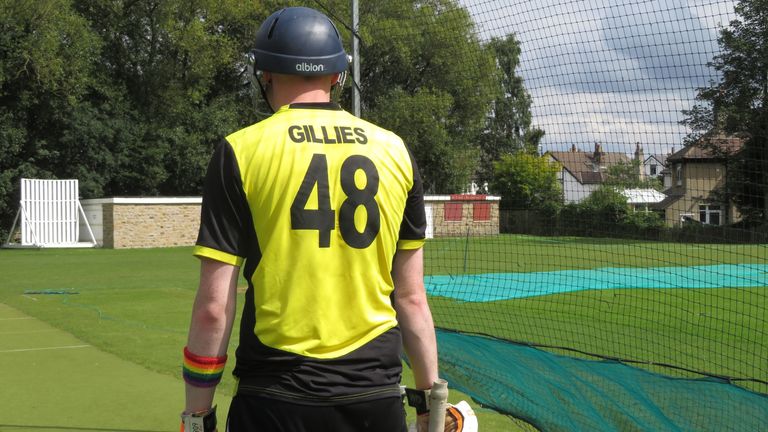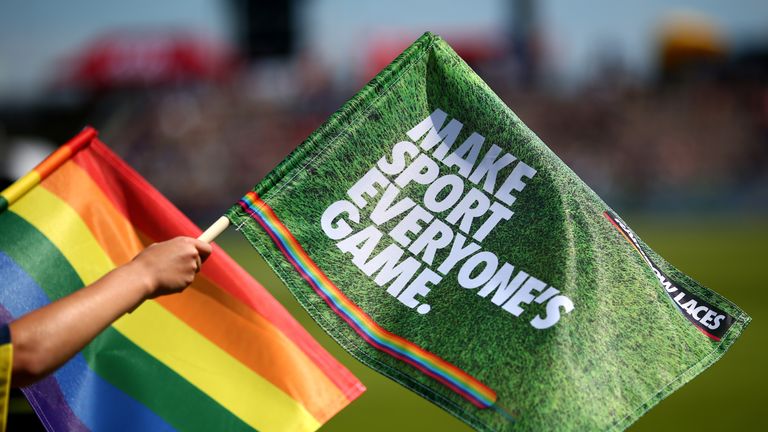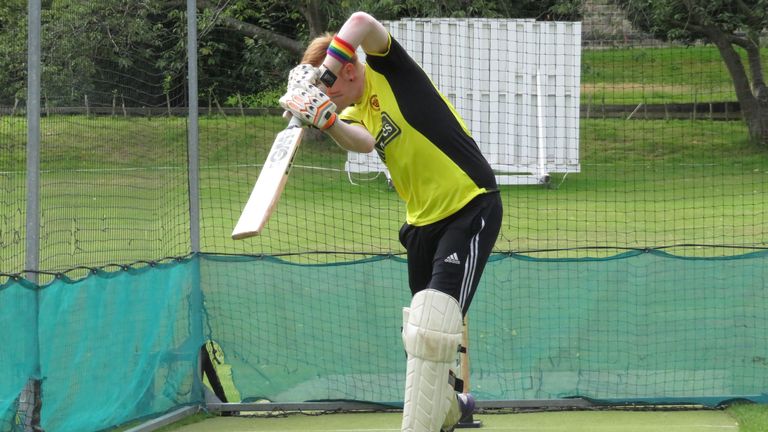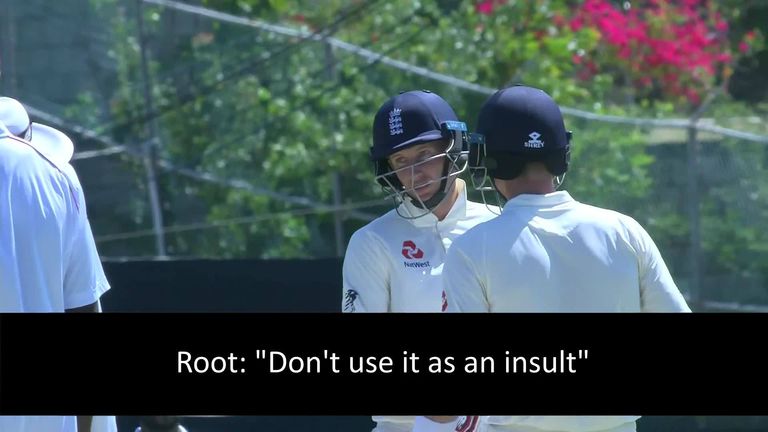As Rainbow Laces returns to T20 cricket, club player Steve Gillies shares his story of being an out gay man in the sport he loves.
This weekend, the ECB is again backing Stonewall’s Rainbow Laces campaign, which is helping to ‘make sport everyone’s game’ by raising awareness around LGBT+ inclusion.
There’ll be visible support for the initiative at Vitality Blast and Kia Super League matches, while players, officials, administrators, broadcasters and fans at all levels of cricket are being invited to get involved by wearing the laces and talking about the game’s welcoming culture.
Lancashire vs Yorks
August 9, 2019, 6:00pm
Live on
So what’s cricket like for LGBT+ people? Sky Sports is giving athletes, coaches and others in sport who are lesbian, gay, bisexual and transgender the opportunity to share their experiences, discuss the challenges they face, and give their views on the progress that’s being made on inclusion.
For the first in this weekend’s series of cricket stories, we meet creative media student Steve who plays in the Airedale and Wharfedale Senior Cricket League in West Yorkshire…
Steve Gillies (St Chad’s Broomfield CC, Leeds)
I’m a middle-order batsman for the second team at St Chad’s, based just up the road from Headingley Cricket Ground. I’ve also captained the thirds a few times this year, and somehow managed to score my first two centuries along the way too!
Cricket has always been my sanctuary. When life is tough or I’m feeling down, the sport allows me to switch off the stresses or the loneliness or whatever is tugging at my mind through the week, and just focus on scoring runs, building partnerships, grinding out against that really good new-ball spell, saving runs in the field, and helping your team-mates to win games. You have to concentrate so much during a game that you can forget everything else.
Seeing rainbow stumps at games and players wearing Rainbow Laces gives me a greater sense of belonging.
Steve Gillies
I fell in love with cricket while growing up in York, watching the 2005 Ashes. A few years later, in February 2011, the England player Steven Davies came out as gay. I was 15 then, and it was a time when I was really questioning everything, having realised that I was attracted to guys. At that age in school, I was exclusively surrounded by straight male friends, and being “gay” was one of the worst things you could be. It was a word for something weird, different, or often something that was just rubbish. It almost felt like a social deathwish to be gay and out. I felt like there was something wrong with me, that I was defective.
But then, here suddenly was someone playing for England, living my dream, at the peak of his career who stood up and told the world he was gay, happy, and unashamed of who he was. It helped me realise that being gay wasn’t something that I should be afraid of, and that I could still achieve great things if I worked hard enough. Steven was now out there doing it at the highest level. He may have only played a handful of games for England around that time, but the impact he had on me was massive.
A couple of years later, I came out as gay to my friends, family and Heworth CC team-mates, which was very daunting. I was so nervous that I’d be rejected by everyone I knew, and that nobody would want to be friends with me anymore. I was particularly worried about how my cricket team-mates would react, to the point that I was even considering leaving the club I’d been at since the age of 12, should it all go badly.
As is typical of a Generation Z-er, I came out over social media, on Twitter (slightly hilarious, looking back). I figured that way I could just write it down, click ‘send’, and then it would be out there. I couldn’t take it back and for better or worse, the weight would be off my shoulders, and then the gossip mill would take care of the rest. I spent all night panicking about it, genuinely wondering if I’d ever play for my club again.
When I woke up and looked at the reactions, the first two people to respond were my first-team captain and the Yorkshire player Jack Leaning, who I’d played with in junior cricket and who was still often around my club, even though he’d made his one-day county debut that season. Both said that I was brave and didn’t need to worry, that I was still one of the lads, that everybody would still love me for who I was, and that being gay was just part of me – it didn’t change who I was as a person, and that people would judge me on what I was like as a bloke, not on my sexual orientation.
‘Confidence in acceptance’
From then on, it just felt like everyone at the club had my back. Cricket had always been my retreat when I felt the world was against me and now it was supporting me at my most vulnerable. The same first-team captain later dished out a dressing down after one of the older, more conservative, non-playing members made a very poor comment regarding gay marriage, which prompted me to walk out of the room.
Since then, and also from growing up a bit, being gay has been something I’ve accepted myself a lot more, mainly through that support I’ve had from team-mates, family and friends. I was confident enough at my current club in Headingley to just tell anyone who asked, and I immediately felt accepted, welcome and part of the team. I know they wouldn’t stand for any homophobia out in the middle or in the pub afterwards. It’s all about having that confidence that you are accepted as part of the group and that if anyone gives you stick for it, they’re the ones in the wrong. That was something I never really felt before coming out.
Now I wear Rainbow Laces every time I walk out to the middle. It’s a small touch that allows me to fully express who I am, with no fear of a negative reaction. You can’t put a price on that. Personally, seeing rainbow stumps at games and players wearing Rainbow Laces gives me a greater sense of belonging. It’s the ECB and the various counties going out of their way to reassure a minority group that they are welcome in the game. The impact of the campaign is something that can’t be measured or written down as a number.
‘Discrimination feels horrible’
Last month, there was an incident in a second-team league game that affected me. We’d bowled the opposition out for 125 and they had felt a bit aggrieved with a couple of umpiring decisions. We then had a shaky start (I walked in at 30-3), meaning that the opposition were very loud and chirpy in the field. It was a blustery day and I had a helmet on, so I couldn’t hear every word that was said. Most of the sledging was aimed at my technique, my very loud calling, and the fact I’d dropped a catch earlier – the usual stuff you’d expect really. But then one of the fielders behind the bat noticed my laces and tailored his sledging towards that.
Suddenly, every time the ball beat the bat, it was because I wanted to get out quickly so that I could “get to Sunderland Pride”. I could hear him say that he expected a gay player to be “better dressed” than I was. The wind made it difficult to hear the exact wording, but it was obvious what he was implying and why he’d targeted me – he’d seen my laces. I didn’t say anything on the pitch, mainly due to the conditions and not wanting to risk accusing anyone falsely, but also because of the shock. Cricket had always been so inclusive for me up until then.
In the end, we won the match (I only scored 12). I mentioned it to my team-mates once I was out. They said it was really poor and that it had no place in the game, but also that this fielder was normally a nice guy and just an idiot who didn’t know what he was saying. In my opinion, the incident reaffirmed the need for Rainbow Laces, even though I did feel embarrassed getting asked about it afterwards when we got back to our own club, and in the pub.
You never know what to say when put on the spot, so I ended up writing a thread of tweets about how I felt…
Few words about today (for my own benefit more than anything)
Yes. I am a gay sportsman. Yes I wear @stonewalluk rainbow laces on my cricket spikes.
But please please please do not sledge me for wearing them, or for being LGBT. (Continued in replies)
It may not have been a particularly major incident, but it was disappointing to me, and the first time I’d received comments. Hopefully it’s also the last.
There’s still a lot of education needed for some people, about what is acceptable to say and what is offensive. Obviously this is a small percentage we’re talking about here but discrimination still exists and it feels horrible when it happens to you. Most people know not to say certain things or try to make jokes about someone’s race, gender, or faith because it would be offensive to those people. Yet some individuals are less informed about what is acceptable to say to someone who is LGBT.
Often I hear slurs from people who aren’t trying to be offensive and who I know aren’t homophobic – they just don’t realise that what they’re saying is a slur. Ignorance is a poor excuse but I feel that the education element just isn’t there. It’s great that acceptance is growing and that LGBT people feel more ‘at home’ in certain situations, but there’s a long way to go yet.
‘Root got it right’
Something that has a big impact is when role models step up as active allies to LGBT people, and a great example of that is the incident involving Joe Root and Shannon Gabriel in St Lucia in February.
In one sentence alone, Root showed himself to be pretty much the perfect ally. It melted my heart a bit when I first saw the video – this is the England Test captain, one of the best players of his generation, whose face is on posters on thousands of kids’ bedroom walls. For those same kids to have seen their hero stand up for LGBT rights on the global stage by saying to Gabriel that “there’s nothing wrong with being gay”, is frankly amazing and will be a massive boost to every young cricket fan who identifies as LGBT in this country and is scared of rejection.
The England captain has their back. It felt so genuine and sincere – it wasn’t like he’d been given some cards to read off at a press release, it was a heat-of-the-moment riposte that was said because he genuinely believed it was the right thing to do. He earned himself a large number of additional fans that day, and I dare say some of those had never watched a game of cricket before in their lives.
Source: Read Full Article
